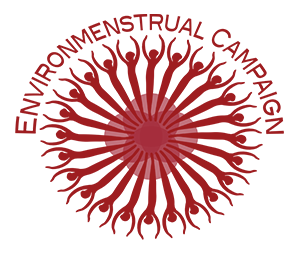Environ-menstrual Advocates
Adapted from “The women taking the plastic out of periods” by Anna Turns for The Guardian. Publication available at: https://www.theguardian.com/world/2019/oct/02/the-women-taking-the-plastic-out-of-periods?utm_source=dlvr.it&utm_medium=twitter
Activist Ella Daish has compiled quite the photo collection, although the subject of these images is rather unusual – plastic menstrual waste washed up on beaches, colourful snapshots sent to her from a plethora of international destinations. There is a purpose to this array; Ms. Daish aims to advocate for the elimination of plastic from menstrual products by lobbying for change.
While conventional menstrual products are not often listed among primary environmental pollutants, sanitary products are found on the beaches of Europe more often than disposable cutlery, straws, or single-use coffee cups. It has been estimated that in the United Kingdom alone, more than 4.5 million feminine hygiene products are flushed down the toilet every day.
In the UK, progress on the sustainable menstruation front has been slowly accelerating. In September, Sainsbury’s established itself as the first retailer to halt the production of plastic applicators for its own brand of tampons, which is anticipated to reduce annual plastic usage by the equivalent of 2.7 tonnes. Concurrently, the Scottish government recently announced the allocation of significant funding toward the distribution of free samples of menstrual cups, reusable sanitary pads, and period pants through their partnership with Zero Waste Scotland.
Sustainable menstrual products have achieved increasing popularity in recent years, inciting new innovations such as tampons with cardboard applicators, silicone menstrual cups, and non-applicator tampons. According to Professor Penelope Philips-Howard from the Liverpool School of Tropical Medicine, products such as menstrual cups create a small fraction of the waste produced by conventional menstrual products, and help contribute to a reduction in the volume of plastic pollution.
Kate Metcalf, the co-director of Women’s Environmental Network (WEN), identifies growing public awareness of the massive plastic pollution problem as a contributing factor to the increasing openness with which many women are willing to discuss menstruation. WEN are the originators of the term ‘environmenstrual’, and along with partner organization City to Sea, have initiated the program ‘Rethink Periods’, which is providing 600 teachers across England with the tools that they require to implement comprehensive period education. In addition to training, the program supplies a box of reusable period products so that students may explore the items in class, in a shame-free environment.
Unfortunately, progress on the environmenstrual front has not been ubiquitous. The UK governments’ ‘Period Product Taskforce’ has partnered with Proctor & Gamble to provide single-use period products in schools, despite the long-term cost efficiency of reusable products and a government mandate for schools to go plastic-free by 2022. Despite deterrents such as these, the environmenstrual movement is here to stay. In response to the taskforce, an open letter has been crafted calling upon the Department of Education to provide free sustainable alternatives in highschools. Progress toward plastic-free periods will continue until sustainable menstruation is a global reality for all.



